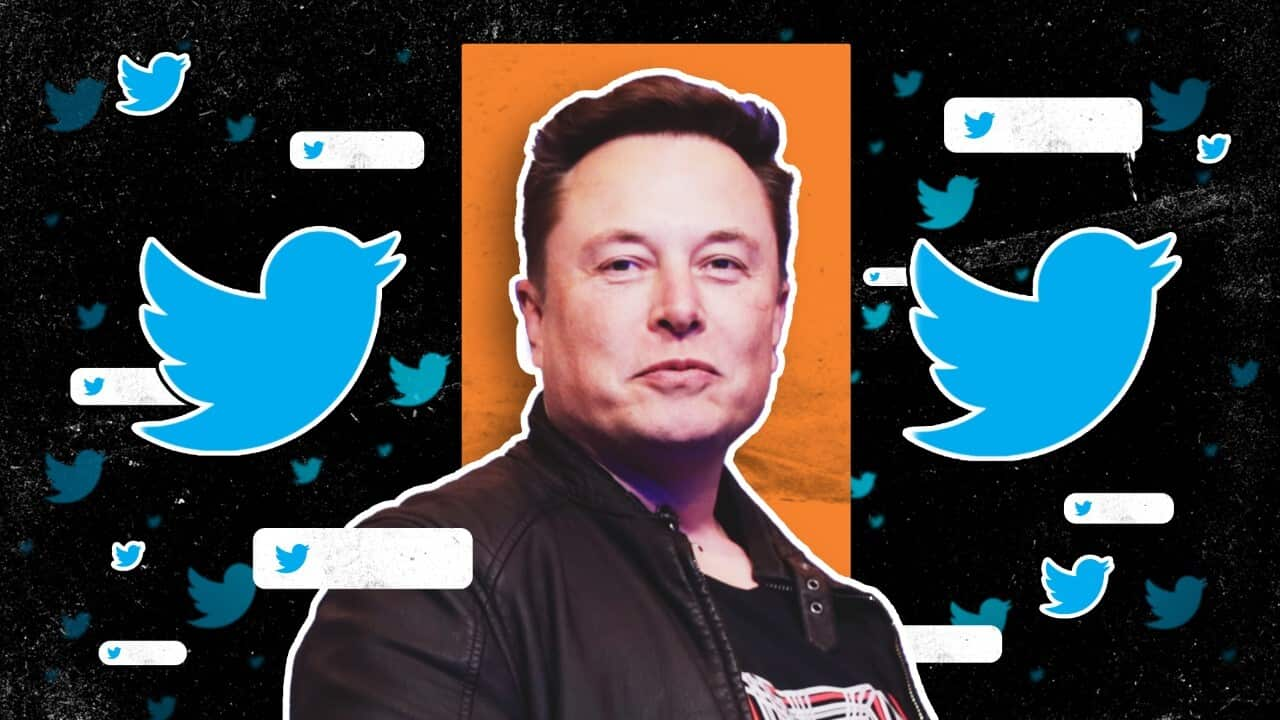Elon Musk may be Twitter’s most prolific user.
He’s made multi-million-dollar decisions – and mistakes – on the platform. From asking followers whether he should sell his Tesla stock to pay more tax (they voted ‘yes’, and he sold) to copping a US$40 million ($54 million) fine for tweeting that he’d sell Tesla shares for $420 (possibly a marijuana joke, definitely fraud according to the US Securities and Exchange Commission).
But now the SpaceX founder, Tesla CEO and world's richest person has gone from user to owner after striking a US$44 billion ($61 billion) deal on Tuesday to buy the platform.
The saga was capped with a hostile takeover, with the publicly-traded firm to become a private company owned by the billionaire.
But Musk, who has already revolutionised the car and space industries, has since ignited concern and interest in what will do now that he has his hands on the platform.
In Musk’s Twitter-verse: Edited tweets, less bots, and more 'free speech'
what he sees as the platform's over-zealous content moderation.
"Free speech is the bedrock of a functioning democracy, and Twitter is the digital town square where matters vital to the future of humanity are debated," Mr Musk said in a statement released by Twitter on Monday.
"I also want to make Twitter better than ever by enhancing the product with new features, making the algorithms open source to increase trust, defeating the spam bots and authenticating all humans."
In a , Musk dropped hints to some of his dreams for the microblogging platform with 217 million daily active users.
In Musk's Twitter-verse, there would be no spam or bot-operated accounts, and you would definitely be able to edit your tweets.
These "less ambitious changes" would be a long time coming, said Terry Flew, Professor of Digital Communications and Culture at the University of Sydney. It's no secret Twitter isn't keeping up with other social media platforms and retaining active users, he added.
More radical changes would see greater transparency around the ever-mythical algorithm, with Musk suggesting users could interact with the algorithm - though the details are still murky.
This push for transparency was hinted at long before he put in his bid to buy the company, with Musk posting a poll with the words "Twitter algorithm should be open source" back in March. Over a million votes were tallied by the time the poll closed, with an overwhelming majority voting "yes".
Musk, who has complained of overzealous moderation on the platform, earlier in April, then offered to buy the whole company outright, citing a mission of preserving free speech.
“It’s just really important that people have both the reality and the perception that they are able to speak freely within the bounds of the law,” Musk said in an interview with TED.
Asked how Twitter should decide whether a certain tweet crosses the line between legitimate free speech and harmful content that needs taking down, he said "if in doubt, let it exist", but said Twitter would not necessarily "promote" that tweet.
“I do think that we want to be just very reluctant to delete things, just be very cautious with permanent bans. Time-outs, I think, are better than permanent bans,” Musk said.
"A good sign of free speech is asking 'is someone you don't like allowed to say something you don't like?'"
Professor Flew said Musk's hint toward a more tailored user experience could see a Reddit-like system come in place, where people interact on particular forums, not just one feed.
More misinformation? More hate? More money for Musk?
Musk's vision for "free speech" has Professor Katharine Gelber worried.
Dr Gelber, who heads the school of Political Science and International Studies at the University of Queensland and has researched freedom of speech, said such a relaxation of content moderation could open the door to greater hate speech, racism, and misinformation on a platform that is already rife with it.
But above all, Dr Gelber doesn’t think it’s about “free speech”.
“For him to say he's doing this for free speech is just a fallacy. It's just wrong. This is not about free speech, if it were there would be a completely different approach needed,” Dr Gelber told The Feed.

Elon Musk in conversation with the head of TED Chris Anderson on 14 April discusses his dreams for Twitter.
Twitter currently bans “hateful conduct” on its platform and takes a varied approach to what it does with these tweets.
The consequence to hate speech could be limiting how often the tweet appears in other people’s feeds, removing the tweet, or suspending the account if the primary purpose of the account is to spout hate.
The same goes for harassment and the glorification of violence, with severe tweets resulting in a permanent suspension. Violent threats currently result in an immediate suspension.
Last week, Musk said in a tweet: "A social media platform's policies are good if the most extreme 10 per cent on the left and right are equally unhappy."
Professor Flew said the billionaire's reluctance for permanent bans poses a big question about former US President Donald Trump, who was banned from the platform for the incitement of violence after the 6 January Capitol riots.
"Would he be allowed back? I would predict if he takes over Twitter, he will buy Trump's 'Truth social' [app] and close it down fairly quickly."
But Mr Trump told Fox News he would not be returning to Twitter if his account was reinstated, saying he would be using his own site, Truth Social - although he appears only to have posted once since its launch in February.
"The bottom line is, no, I am not going back to Twitter, ” Mr Trump said.
Mr Flew told The Feed a takeover from Musk with the push for "free speech" may just see it shift from a "left-wing platform to a right-wing platform," but it's clear, "he's not trying to buy Twitter to run it as it has been run".
'This is about democracy, not money'
Musk, who frequently writes about cryptocurrencies on his Twitter and famously sent the Dogecoin share price soaring after a tweet, has previously been accused of "pumping and dumping" cryptocurrency.
This is when someone spreads false or misleading information to create a buying frenzy that will “pump” up the price of a stock and then “dump” shares of the stock by selling their own shares at the inflated price.
Although Musk has shares in a few cryptocurrencies, he said, “I might pump, but I don’t dump.”
The position that his Twitter chase is for financial gain is one Musk pre-empted - and rejected - in his interview with TED, calling Twitter "important to the function of democracy".
"It's not from a standpoint of 'how do I monopolise on Twitter?'... I don't care about the economics at all," he said to doubters.












